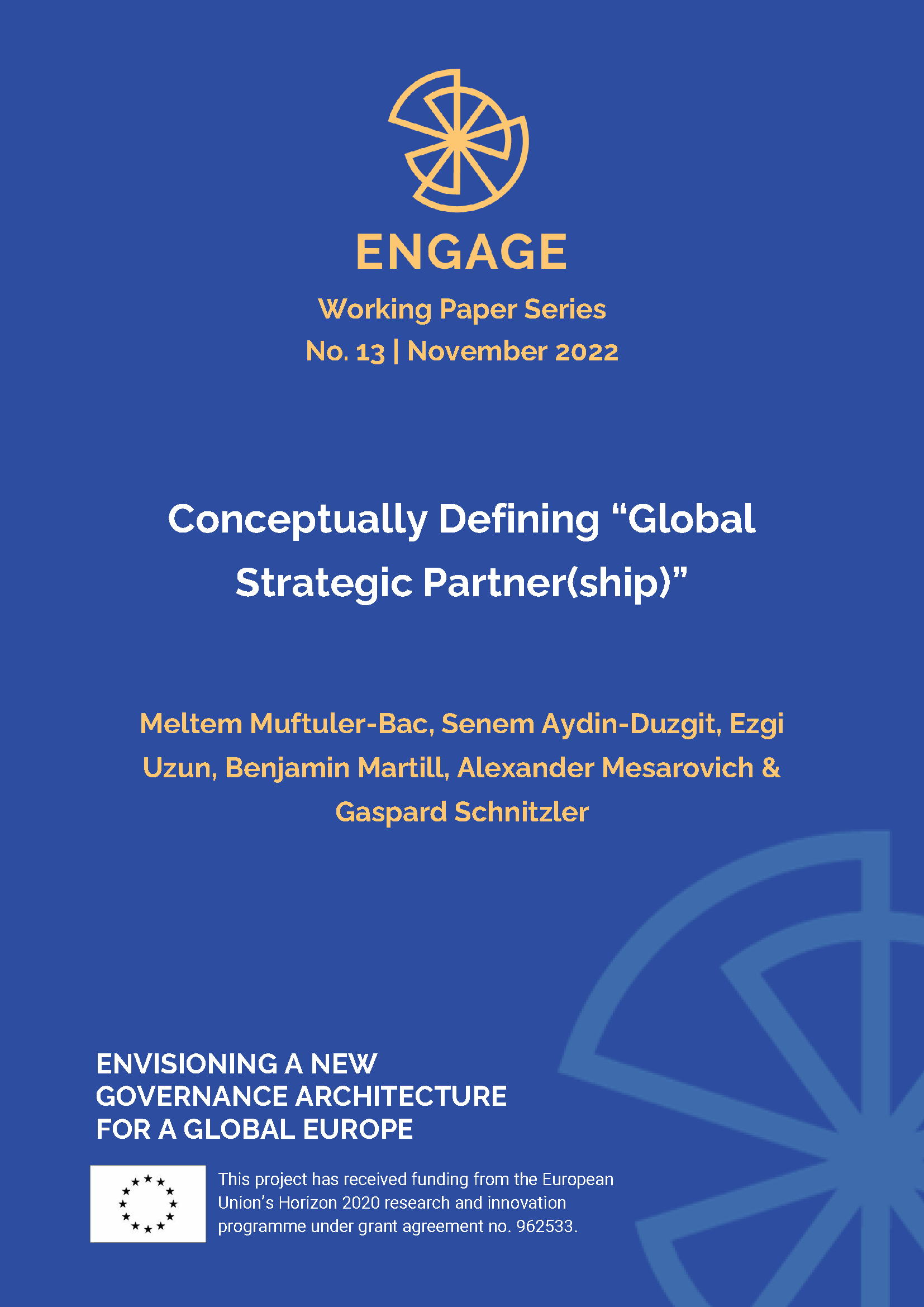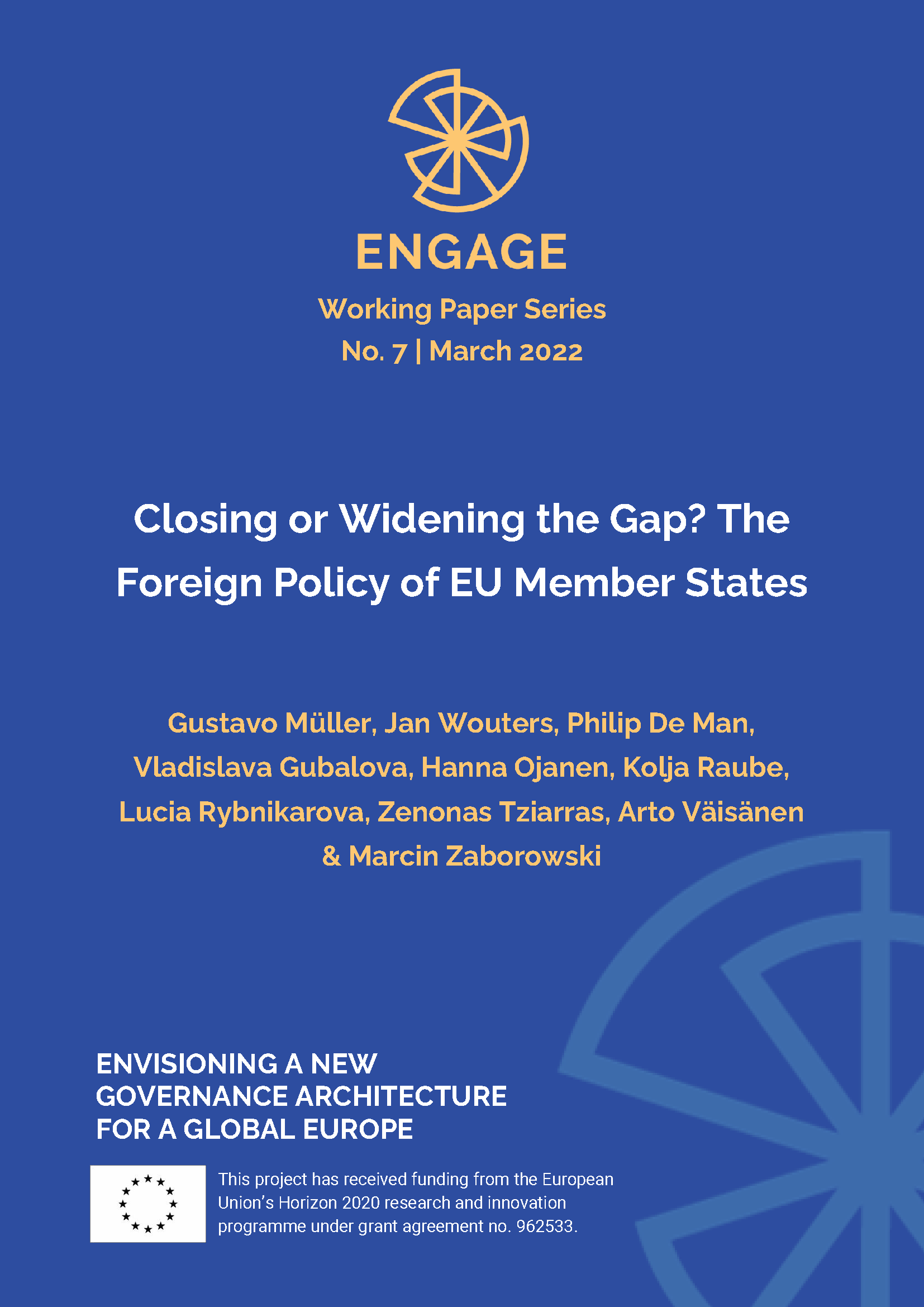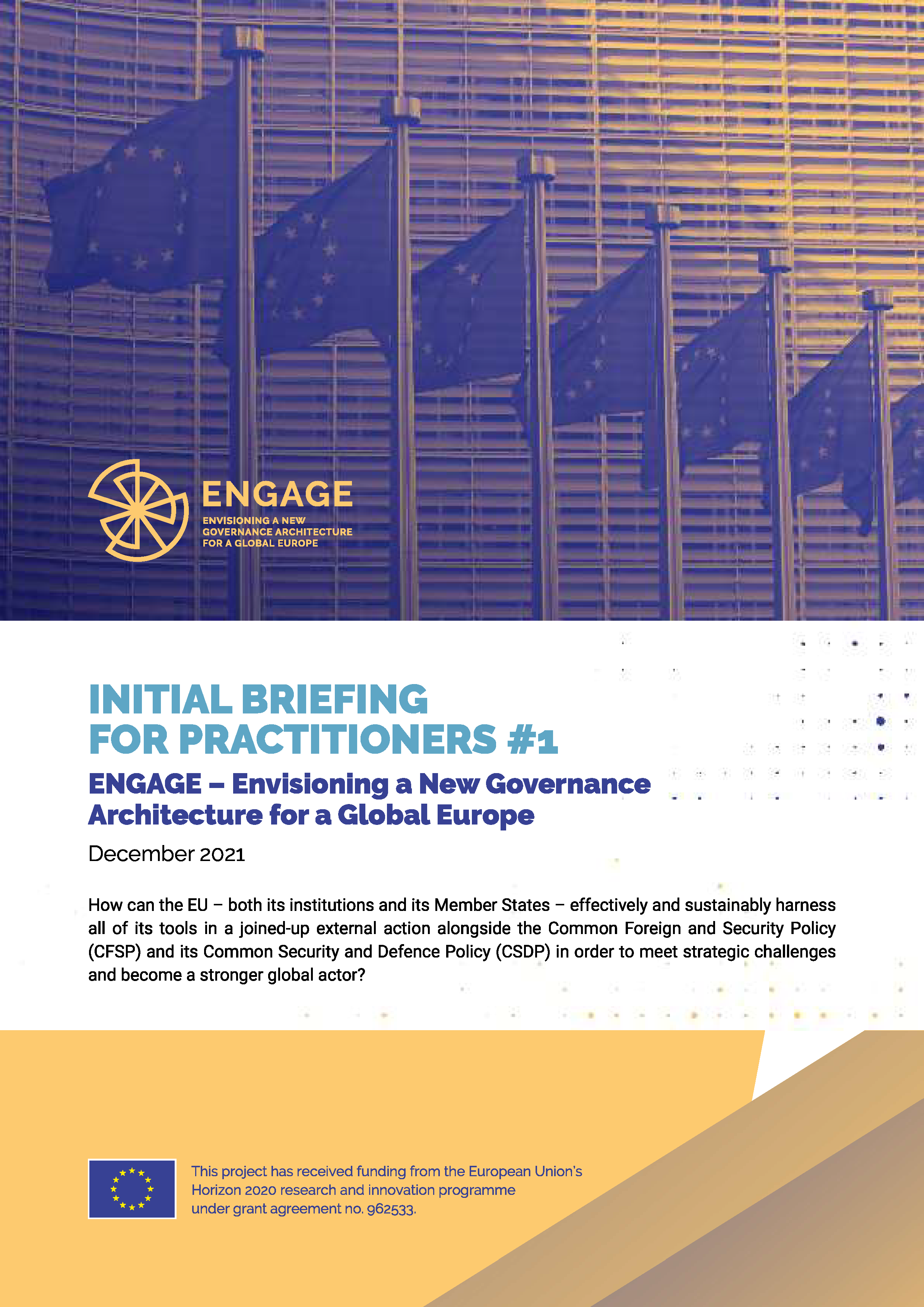
Publications

Case Studies of the EU’s CFSP Activity
Regional and geopolitical challenges, especially Russia's war against Ukraine, have once again drawn attention to the EU's Common Foreign and Security Policy (CFSP) as well as the effectiveness of its instruments. To derive policy implications, this working paper assesses the effectiveness, coherence and sustainability of CFSP actions through geographical and thematic case studies, and an analysis of the relevant decision-making procedures.

Case Studies of the EU’s CSDP Activity
Civilian and military missions and operations represent one of the main activities of the EU's Common Security and Defence Policy (CSDP). Through selected case studies, this paper evaluates the effectiveness, efficiency, coherence and sustainability of the EU's CSDP activities, revealing differences among the deployments, while identifying common obstacles. By analysing these lessons learnt, recommendations for improving the effectiveness and sustainability of EU external action are presented.

Experiences of Joined-Up Security, Defence and Intelligence Policies: Drawing Lessons from Multi-Layer Governance Systems
Looking at three case studies, this working paper examines how non-EU countries with complex governance structures coordinate their joined-up policies in the areas of security, intelligence and defence. Focusing on migration management in Brazil and Turkey as well as artificial intelligence in the United States, each example highlights country-specific policy challenges and the strategies used to address them. The lessons learned show that inter-agency coherence problems are not unique to the EU and that policy recommendations should consider innovative solutions.

Initial Briefing for Practitioners #2
This brief presents practitioner-oriented implications derived from the research conducted in the second year of the ENGAGE project, for which it presents four sets of takeaways. The first set focuses on the acceptability of EU efforts in defence and security in the national parliaments of Member States and among the public. The second set of takeaways is related to structural changes in the EU’s external environment. The third set zooms in on the legal bases for the EU’s external action, while the fourth and final set relates to various tools, policies and strategies of the EU’s external action.

Case Studies of Trade, Development and Humanitarian Action
This paper develops an analytical framework to explore the internal and external factors that facilitate or obstruct linkages among external action plus policies and how these linkages contribute to EU external action. The results of the empirical work show considerable variation across the three policy areas of trade, development aid and humanitarian aid and the factors that matter for issue linkage. Overall, the contribution reveals important issue linkage dynamics that shape policymaking and serves as a platform for future research and policy recommendations on external action plus.

Analysing Political Acceptability of Reforms Among National Policymakers
This paper explores the perceptions and preferences of Member States (MS) with regard to EU foreign and security policy sheds light on various MS’ positions regarding a range of reforms and underused mechanisms by assessing levels of acceptability among national policymaking elites. The paper’s data reveals a divide among MS on the acceptability of various reforms but shows that some room for negotiation exists.

Securitisation of the Neighbourhood: EU-Driven Frame Alignment and Projection on Southern and Eastern Neighbourhood Partner Countries
This paper scrutinises the EU-driven strategic framings of “neighbours” and “neighbourhood” through a critical and thorough investigation of the European Neighbourhood Policy’s (ENP) documents and related official EU texts. The paper identifies that increased securitisation of the ENP has taken place between 2003 and 2022, alongside and increasing diversification and overlap across different policy fields within the ENP.

The EU’s Engagement in Conflict Resolution, Prevention and Mediation: A Framework
This working paper advances an analytical framework to study the European Union’s engagement in interconnected areas of conflict prevention, mediation and resolution. It argues that the EU’s actions in these fields are inherently overlapping but not always complementary. It further suggests that coordination of the Union’s actions with external partners before, during and after intervention in a conflict or crisis scenario is of crucial importance, and that early warning systems and foresight should be even further embedded in distinct EU institutions and policies of conflict management and prevention.

Conceptually Defining “Global Strategic Partner(ship)”
By putting forward a theoretical and conceptual definition of strategic partnership, this working paper provides an assessment of the European Union’s global strategic partners and furthers the ENGAGE project’s objective of assisting the EU’s foreign policy by allowing a more structured engagement with other countries. The challenges faced by the EU are explored in the paper in terms of the relevant forms of cooperation and conflict between the EU, its Member States and their respective global strategic partners.

Citizen Perceptions on EU Security and Defence Integration: A Big Data-based Analysis
This paper studies public opinion of advancing EU integration with a specific focus on the EU’s Common Security and Defence Policy between 2017 and 2022. Based in an analysis of all web-based news on security-related matters published during that timeframe, the paper finds that the Russian invasion of Ukraine in 2022 has accelerated trends in acceptability among the public of the EU’s increased role in security and defence.

The Evolution of Global Governance
This paper maps and analyses the evolution of global governance in key areas related to security, defence and intelligence through case studies over the past five to ten years. Its conclusions and observations are designed to help inform the EU’s engagement with key global and regional actors in the governance of the studied areas and global governance in general.

Developing Assessment Criteria for Security and Intelligence Cooperation in the EU
In the European Union, cooperation in security and intelligence matters has always been a significant challenge. To better understand the limits to more effective cooperation in the field, this working paper’s authors draw on interviews with current and former intelligence officials to propose a set of assessment criteria for security and intelligence cooperation at the EU level.

Developing Assessment Criteria for Defence Cooperation
This working paper proposes tools to enable consistent and high-quality evaluation of defence cooperation in the EU framework and among EU Member States. The criteria and metrics proposed can ultimately inform future attempts at defence cooperation in terms of best practices and those that should be avoided.

Unpacking National Parliamentary Perceptions of CSDP Operations, 2016-2021
This paper provides a first snapshot and comparison of national parliamentary perceptions of EU military and civilian operations that could be observed in the parliaments of 13 selected EU Member States during the years 2016 to 2021. The authors unpack national parliamentary perceptions of EU crisis management to contribute to better understandings of why the EU behaved the way it did and what this may imply for future EU crisis responses.

Closing or Widening the Gap? The Foreign Policy of EU Member States
This working paper maps and analyses the foreign policy of thirteen selected EU Member States with a focus on their present and long-term defence and security strategies. It concludes that gaps exist in the strategic thinking amongst Member States and between Member States and EU institutions, but that these divergences are not insurmountable obstacles to a deeper cooperation and a more coordinated EU external action.

The Current Legal Basis and Governance Structures of the EU’s External Action
This Working Paper explores the current legal basis and governance structures of the EU’s “external action plus”, meaning traditional external action areas like common commercial policy, sanctions policy, development cooperation and humanitarian aid, as well as the external dimension of some internal policy areas, including competition, health and environment.

Initial Briefing for Practitioners #1
This brief presents initial practitioner-oriented implications derived from research conducted in the first year of the ENGAGE project. It provides an overview of key global trends and dynamics linked to the transformation of the global order, reflects on the national acceptability of EU external action, delivers an overview of the legal base and governance structures of CSDP and CFSP and it puts forward definitions for the effectiveness, coherence and sustainability of the EU’s external action.

Mapping the Current Legal Basis and Governance Structures of the EU’s CFSP
This Working Paper assesses the special legal nature of the CFSP and explores the legal possibilities to enhance decision-making procedures. It argues that current EU Treaties should not necessarily be amended to achieve better outcomes.

The Current Legal Basis and Governance Structures of the EU’s Defence Activities
This Working Paper explores the current legal basis and governance structures of the EU’s Common Security and Defence Policy (CSDP) and other areas with defence implications, with a special focus on the so-called “sleeping beauties”.

Towards Effective, Coherent and Sustainable EU External Action: Laying the Ground for the ENGAGE White Paper
This working paper lays common ground for the ENGAGE project by putting forward shared definitions of the effectiveness, coherence and sustainability of the EU’s external action, as well as discussing the scope and content of the planned White Paper and its specific objectives.

